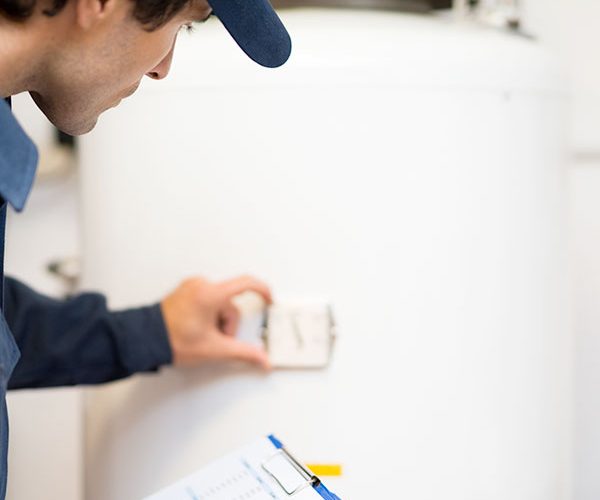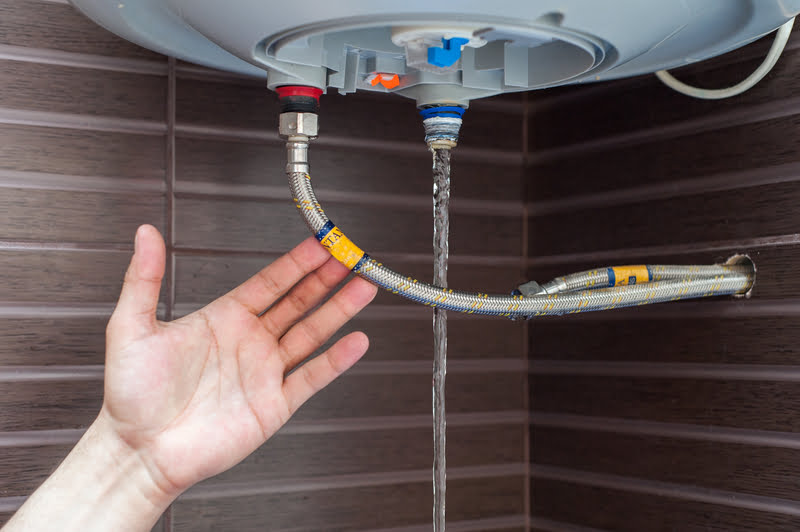Dealing with the Top Water Heater Crisis Situations
Dealing with the Top Water Heater Crisis Situations
Blog Article
We have stumbled on this post pertaining to Common Hot Water Heater Problems down the page on the net and think it made perfect sense to discuss it with you over here.

A hot water heater is just one of the most crucial basic devices that can be found in a home. With water heaters, you don't need to undergo the anxiety of heating water by hand each time there is a demand to take a bath, do the laundry, or the recipes. Nonetheless, there is always a possibility that your water heater would break down just like many mechanical devices.
It is very important to note any type of little malfunction as well as tackle it swiftly prior to things leave hand. Many times, your hot water heater starts to malfunction when there is a build-up of sediments as a result of continuous use. As a safety measure, periodic flushing of your hot water heater is suggested to stop debris accumulation as well as protect against practical failing.
Typical hot water heater emergency situations and how to handle them
Leaky water heater storage tank.
In this circumstance, you need to transform off your water heating system, permit it to cool down, and carefully look for the resource of the problem. At times, all you need to do is to tighten a couple of screws or pipe links in cases of minor leakages. If this doesn't work as well as the leakage continues, you may need to utilize the solutions of a professional for an appropriate substitute.
Changing water temperature.
Your water heater could begin producing water of different temperature levels generally ice hot or cool warm. There may be a requirement to replace either the heating or the thermostat unit of your water heating system.
Inadequate hot water
It may be that the water heating system can't sustain the warm water need for your apartment. You could upgrade your water heater to one with a larger ability.
Discolored or smelly water
When this happens, you need to know if the issue is from the water or the tank source. If there is no amusing smell when you run chilly water, after that you are particular that it is your water heater that is damaged. The smelly water can be triggered by corrosion or the accumulation of germs or sediments in the water heating system container.
Conclusion
Some home owners neglect little warning and also minor faults in their water heater system. This only results in additional damage and a possible full break down of your appliance. You should take care of your water heater faults as quickly as they come up to avoid more costs and unnecessary emergency difficulties.
With water heating units, you don't require to go via the stress of home heating water manually every time there is a requirement to take a bath, do the washing, or the recipes. Your water heating unit might start creating water of various temperature levels typically ice scalding or cool warm. It may be that the water heater can not sustain the hot water need for your house. If there is no amusing odor when you run chilly water, after that you are particular that it is your water heater that is faulty. The odiferous water can be triggered by rust or the build-up of microorganisms or sediments in the water heating system container.
What’s Wrong With My Water Heater?
Not Enough Hot Water
You probably encounter this problem in the shower or while washing dishes. As you run your water, you’ll notice it starting to cool down. Turning up the hot faucet may not work, or it may only heat the water for a short period. Your hot water probably comes back and works normally one or two hours after you use it up.
If you’ve never had enough hot water, your heater may be too small for your home. If you haven’t had a problem until recently, there’s probably something’s wrong with your heater’s thermostat. Try adjusting it to see if you can feel a difference. Even if the thermostat’s working, the heating element itself could have burnt out. It’s also possible that a clog has restricted water flow into or out of the heater. Luckily, none of these problems are hard to fix, as long as you call them in early.
Water is Too Hot
Unregulated water heaters can make water dangerously hot. You probably have this problem if you’ve been scalded by your hot water. It’s also a likely culprit if you have trouble getting your faucets to produce a comfortable temperature. This problem is easy to fix, but it can also be a serious health hazard if you don’t address it. If you think your water is too hot, don’t doubt yourself; look into it!
Start by finding your heater’s thermostat and mark its position with a pen. Turn the thermostat to a cooler setting. Wait a couple hours to see if the problem is solved. If it isn’t, listen for boiling in the tank and look for water that comes out of the faucet steaming. In those cases, your temperature-pressure relief valve may be malfunctioning. This is a serious problem that can be dangerous, so you should have it looked at right away.
Discolored or Smelly Water
If all your water looks rusty or smells weird, there’s probably a problem with your pipes. If only your hot water looks weird, however, your water heater is probably at fault. Hot water discoloration comes in several varieties. It could look orange or brown-ish, taste rusty, or feel grainy. It could also look yellow or green-ish and taste gross or feel slimy. Either way, it’s a sign that there’s something wrong with your water heater’s tank.
Usually, hot water discoloration means sediment has built up in your tank. Sediment is made up of hardened minerals that accumulate on the inside of the water heater’s walls. When enough sediment builds up, it causes all kinds of problems–including your discolored water. Try flushing your water heater tank to clean out built up sediment. If the water still tastes rusty, your tank’s rust-preventing anode rod may have worn out. A pro can replace an anode rod easily, but without one, your tank could rust beyond repair relatively quickly.
Leaking
Water heaters can leak from several different places, and each leak means something different. If the leak is coming from a pipe above the heater, it’s possible the tank itself hasn’t been compromised. The cold inlet, hot outlet, and T&P pipes could all leak from above. Try tightening the problematic valve. If that doesn’t work, then the valve or pipe will have to be replaced.
If the leak is coming from the bottom of the tank, it’s important to determine exactly where it is. The leak could be coming out of the drain valve or your T&P valve below the tank. You can replace those valves and preserve the tank itself. If you notice the water tank itself leaking, however, that probably means it’s corroded beyond the point-of-no-return. Leaking water heaters are a big deal, so you should get yours replaced ASAP.
https://www.punctualplumberdallas.com/blog/whats-wrong-water-heater/

I hope you enjoyed reading our article on Is Your Water Heater Leaking?. Thank you so much for taking a few minutes to browse our content. Are you aware of anybody else who is very much interested in the topic? Do not hesitate to promote it. I recognize the value of reading our article about Warning Signs You Need Water Heater Repairs.
Contact for assistance. Report this page